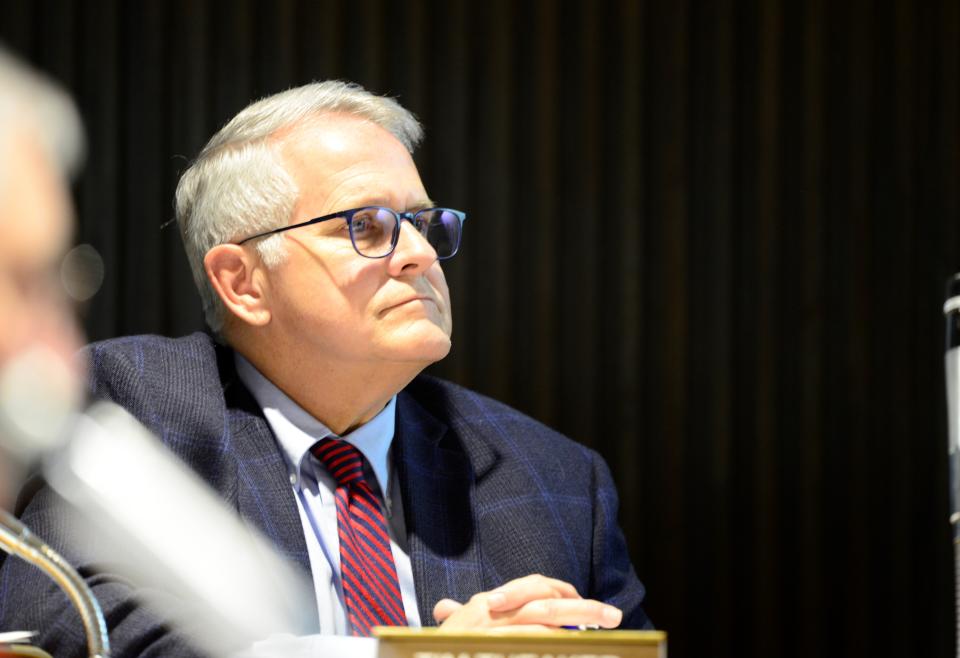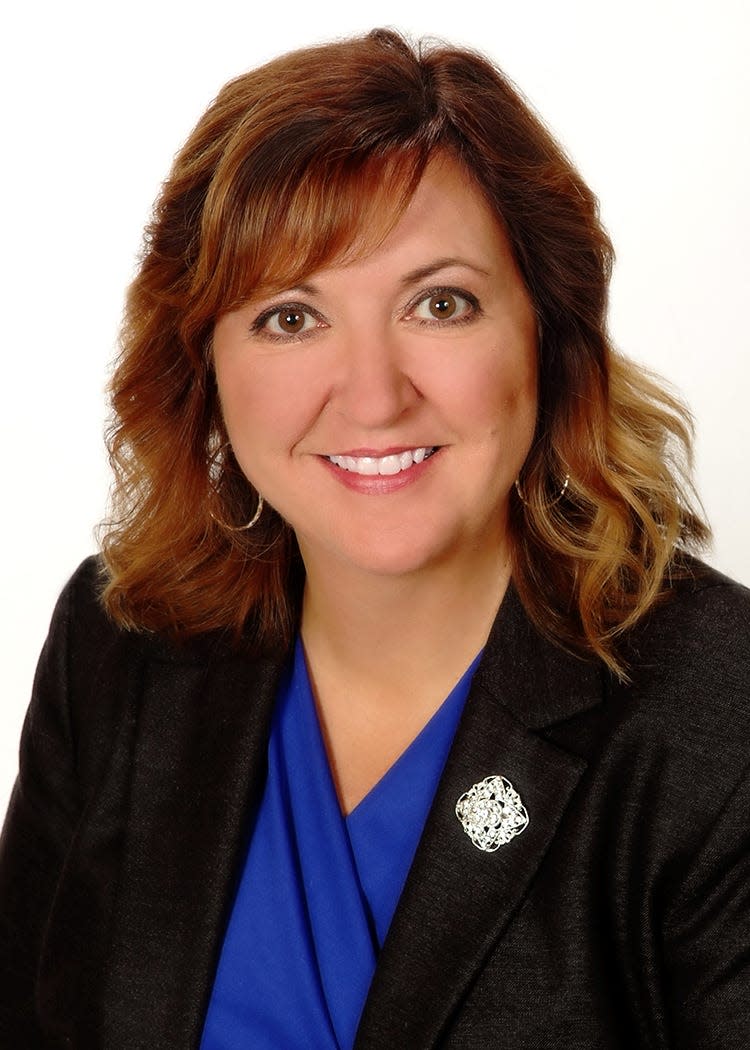Mansfield residents will see increase in water bills following council's vote
Nearly four months after members began discussing the issue, Mansfield City Council voted Tuesday to add a fixed fee to residents' water bills.
Council voted 7-1 on the measure. Stephanie Zader was the lone dissenting vote.
The increase will generate $2.7 million a year for a "readiness to serve" charge. City Engineer Bob Bianchi said most residents have a tap of 1 inch or less and will pay an additional $10.93 a month.
The measure did not include eliminating the lowest tier, which would have generated another $650,000 a year.
Mansfield's administration wanted to eliminate the lowest tier, but at the most recent meeting, Councilwoman Laura Burns proposed reinstating it to lessen the burden on taxpayers.

"I think it's a sensible compromise between the administration and council," Bianchi said after Tuesday's meeting. "We will review our rates in two years, and we'll see how that modification impacted our rates."
Bianchi has made a number of presentations to council, citing the need for the increase. He talked about needing to replace water mains and make improvements to the water treatment plant.
By city ordinance, council is supposed to review the rates every two years.
"Our hope is we never have to do this increase like this again," Bianchi said. "We'll establish an automatic increase (of 3%) starting in 2025. That (automatic increase) is what we did with our sewer. We would do the same with water.
"We went 17 years at 0% (increase). It's not sustainable, so we're catching up."
City water rates lower than most of Ohio
Mansfield residents have been paying below most of their Ohio counterparts. On average, Ohioans paid $697 per year for water service. Mansfield residents were paying $510.77.
With the increase, the annual cost for city customers would average $641.90, depending on usage.
Prior to the vote, council members weighed in with their opinions.
"This is about infrastructure and health and safety," Councilman Aurelio Diaz said. "You can't mess around with water."
Diaz said his job in social services involves working with many low-income people. Even so, he said the need was too great to ignore.
"I knew from Day 1, I was going to support it," Diaz said of the increase.
Councilman Alomar Davenport questioned how an increase might impact the city's 0.5% income tax issue for the safety forces, which is on the May 2 primary ballot.

"I'm hoping and praying that it does not affect the safety levy," Mayor Tim Theaker said, adding that levy is a renewal and not a new tax. "We have to make sure what we provide to our citizens is the best we can provide."
Zader was the next to speak.
"I have been an outspoken opponent of this bill," she said. "I understand that safety is important, but I think this is still reactive.
"I'm not against an increase, but I don't feel this is the best we can do."
Finance director had questioned need for large increase
At the last council meeting, city Finance Director Linn Steward said there might not be a need for such a large increase.
Steward questioned some of the capital outlay requests and suggested applying for a five-year loan at 5% for those requests. She said such a payment would be about $1.1 million a year and would be paid off in 2028.
After Tuesday's meeting, Bianchi said Steward's numbers did not factor in any capital improvements, equipment, water line replacements or raises for the city's union employees.
While Zader said the city is being reactive, council members El Akuchie and Kimberly Moton disagreed.
"We have looked at this over and over and over again," Akuchie said. "Let's get this going."
Moton added, "When I look at the overall picture, we're really trying to be proactive."

Councilwoman Cheryl Meier said, prior to the vote, there is a need for checks and balances.
"We're two years into a three-year rate hike," she said of water bills. "We're now coming back to the citizens and saying that we messed up, that this is not enough."
Councilman Phil Scott agreed with Meier and asked about establishing an oversight committee.
Scott previously was against an increase, but he has since changed his mind.
"I've given this a lot of consideration," he said. "We can keep kicking the can, and we'll be back here in a year. I think it's necessary that we pass this."
The only two residents who signed up to address council approved the hike.
Local attorney Eric Miller is the head of the United Pothole Haters.
"Mansfield is part of a national trend where many cities have neglected infrastructure that will someday lead to a catastrophic failure," he said. "This has been well-documented by national organizations that monitor safe drinking water.
"So, we are not alone in neglecting our infrastructure. We are fortunate that today there is intense public discussion of this issue in Mansfield."
Council has been considering an increase since its Oct. 18 meeting. Members were scheduled to hold three readings and vote on Dec. 6, but they decided to table the issue after a lengthy discussion.
Council again was supposed to vote on Jan. 3 but tabled the decision to allow all members to be present. Meier was absent from that meeting.
mcaudill@gannett.com
419-521-7219
Twitter: @MNJCaudill
This article originally appeared on Mansfield News Journal: Mansfield City Council approves water bill increase for residents

